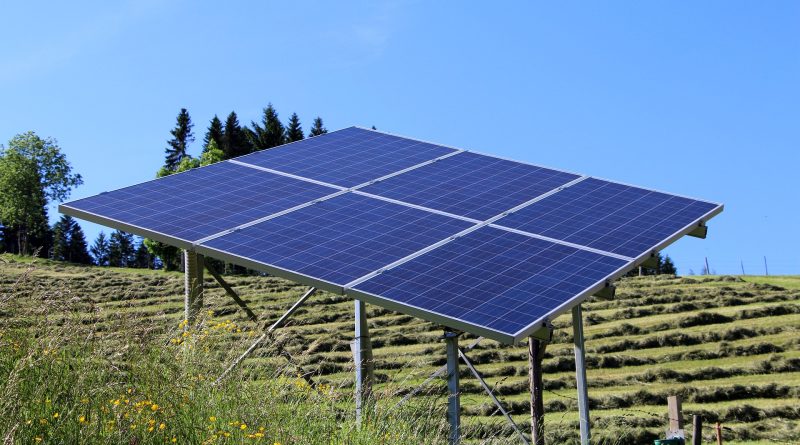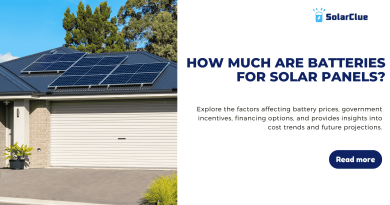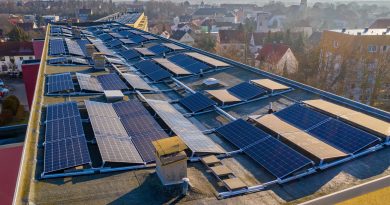On-Grid vs Off-Grid Solar: Choosing the Right Option
Solar energy has gained significant popularity in recent years as a sustainable and renewable source of electricity. With advancements in technology, more and more people are considering installing solar panels on their properties. However, one crucial decision that homeowners need to make is whether to opt for an on-grid or off-grid solar system. Both options have their advantages and disadvantages, and choosing the right one depends on various factors. In this blog, we will explore the differences between on-grid and off-grid solar systems to help you understand which option might be better suited for your needs.
Table of Contents
On-Grid Solar
On-grid solar systems, also known as grid-tied or grid-connected systems, are connected to the electricity grid of the local utility company. These systems generate electricity using solar panels and feed any excess energy back into the grid. On-grid solar systems do not require batteries since any additional power is automatically bought back from the grid when needed.
One major advantage of on-grid solar systems is that they are generally less expensive to install than off-grid systems. This is primarily because there is no need for expensive battery storage. Additionally, on-grid solar systems allow homeowners to take advantage of net metering, a policy in many areas that credits homeowners for the excess electricity they produce. This credit can significantly offset the cost of electricity consumed during times when solar production may be limited, such as at night or during cloudy weather.
Off-Grid Solar
Off-grid solar systems, as the name suggests, are not connected to the electricity grid. These systems generate electricity using solar panels and store it in batteries for later use. Since off-grid systems do not rely on the grid, they provide electricity even during power outages or in remote areas where grid access may be limited.
One advantage of off-grid solar systems is their independence from the utility grid. Homeowners have complete control over their electricity production and consumption, allowing them to be self-sufficient and free from utility bills. Off-grid systems are particularly suitable for remote locations or properties where connecting to the grid is cost-prohibitive.
However, off-grid solar systems come with some challenges. The initial cost of installation is higher than on-grid systems due to the need for battery storage. Batteries must be sized to store enough energy to meet electricity needs during periods of low solar production, such as during winter months or overcast days. Additionally, off-grid systems require ongoing maintenance and monitoring to ensure the batteries are functioning optimally and to prevent power shortages.
Considerations for Choosing the Right System
When deciding between an on-grid or off-grid solar system, several factors should be taken into account. Here are some key considerations:
1. Location: The location of your property plays a crucial role in determining whether an on-grid or off-grid system would be more suitable. If your property is in a remote area without access to the grid, an off-grid system would be your only option. In contrast, if your property is already connected to the grid, an on-grid system may be more convenient and cost-effective.
2. Budget: Your budget is another important consideration. On-grid solar systems tend to be less expensive upfront, as they do not require battery storage. Off-grid systems, on the other hand, require an initial investment for batteries but can provide long-term savings if you are in an area with high electricity costs or have limited access to the grid.
3. Energy needs: Assessing your energy needs is crucial to determine the size and capacity of the solar system you require. If you have high energy demands or experience frequent power outages, an off-grid system with battery storage would be more suitable. However, if your energy consumption is relatively low and you live in an area with a reliable grid, an on-grid system may fulfill your requirements.
Conclusion
Ready to make the switch to solar? Explore the advantages of on-grid and off-grid systems with SolarClue® today. Whether you’re seeking cost savings and grid convenience or aiming for energy independence in remote areas, we have the perfect solar solution for you. Take the first step towards a cleaner and more sustainable future. Contact SolarClue® now to power your life with the sun!
Frequently Asked Questions
On-grid systems are connected to the utility grid, while off-grid systems operate independently.
The cost-effectiveness depends on factors like location, energy needs, and access to the grid.
Yes, but it requires sufficient storage capacity for energy during non-sunlight hours.
On-grid systems rely on continuous grid access, while off-grid systems provide autonomy but need careful planning.
Government incentives often apply to both, promoting solar adoption.
On-grid systems may have lower maintenance costs, but off-grid systems offer independence.
It’s possible but involves system modifications. Plan your system according to future needs.
Off-grid is ideal for remote areas with no grid access, providing self-sufficiency.
Both systems can function well, but extreme conditions may affect efficiency.
Yes, many on-grid setups allow you to feed surplus energy back into the grid, earning credits.




